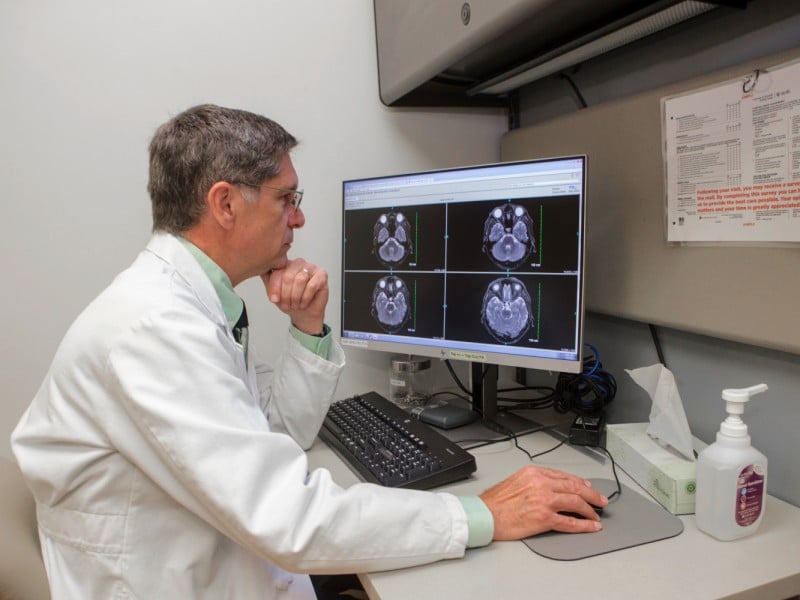Point-of-care technology saves critical minutes for heart patients, UC researchers find
Researchers at the University of Cincinnati have studied new devices that bring tests previously done in a laboratory to the patient’s side in the emergency room, speeding the care of cardiac patients and potentially improving the outcome.
“Time is muscle” is a saying that emergency room docs live by when it comes to taking care of heart patients. Looking for ways to save time and heart muscle, researchers at the University of Cincinnati have studied new devices that bring tests previously done in a laboratory to the patient’s side in the emergency room, speeding the care of cardiac patients and potentially improving the outcome. The research, led by UC’s Dr. Richard Ryan, was conducted at four emergency departments across the country; results are published in the Annals of Emergency Medicine.
When patients go to an emergency room with chest pain, doctors typically conduct an electrocardiogram and then test the blood for markers that could indicate heart trouble. Profesional guidelines say the blood test results should be available in less than 60 minutes, but hospital laboratories often struggle to meet that goal. UC emergency medicine researchers at Jewish Hospital in Cincinnati tested a hand-held, point-of-care device called i-STAT, developed by Abbott Point of Care, which can be used right in the emergency department. The study found that i-STAT blood test results were available in less than 30 minutes more than 80 percent of the time, and under the one-hour limit 98 percent of the time. The hospital laboratory, on the other hand, only met the one hour target about half of the time.
Ryan and collegaue Christoper Lindsell have been studying the entire process of treating and testing emergency coronary patients, working to speed up potentially life-saving treatment. “This is not about the brand of device, this is about the physician being able to get the result of the tests faster, and make decisions about how to treat the patient faster,” Lindsell says.
Writer: David Holthaus
Source: Andrea Koenig, University of Cincinnati















